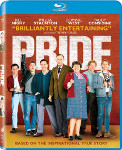
Pride
"Pride," you ain't foolin' nobody. So fine, strip all traces of gayness from your box art, but no closet can hide the fact that you, by title alone, are an exploding rainbow of gay. You got all the colors. You're loud and proud. YOU HAVE DILDOS. In this hilarious, moving British dramedy based on the true story of an unlikely alliance between coal miners and LGBT activists in mid-'80s Britain, queers abound. Uniting to stand up with and for each other, a fired-up group of elderly lunch-lady types working to support families affected by the British miners' strike, team up with a gaggle of "gays" (as they're affectionately referred to by elders with curiosities of their own) for a good cause. In the process, unexpected bonds are formed as a reminder that the power of many is greater than the power of one. With a brilliant ensemble cast, "Pride" boasts hearty laughs – the discovery of a pleasure chest, for example, will have you rolling – while also imparting emotional segues so unexpected you hardly notice them until they've got you by the tear ducts and you're at the mercy of such perfectly poignant filmmaking. The feature's greatness more than makes up for the lacking extras, which merely include deleted scenes and a brief history of the real-life "Pride" story.
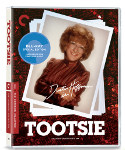
Tootsie
Before everyone and their mother was down with drag (because for real – moms love drag these days), frolicking in clothes of the opposite sex existed in specific corners of the world – queer corners, mostly. With then-Hollywood heavyweight Dustin Hoffman taking on the titular Southern-belle role in a comedy that earned commercial and critical cred, "Tootsie" certainly didn't hinder the broad embrace of drag culture. And it's no wonder Hoffman gets emotional (and self-critical) when discussing the film years later during a candid new interview for the Criterion Collection's Blu-ray release: The classic, for all its hijinks involving a dress-donning Hoffman awkwardly stammering his way through sticky situations, is really a heartfelt journey through self-discovery. It's to Hoffman's credit as an actor that he humanizes what could have otherwise been a one-note caricature. But no – his portrayal of Tootsie expresses more than meets the eye, as we witness what being a woman means to a man. Hoffman's own present-day thoughts on the dramedy bring this much-anticipated Blu-ray release full circle, as Criterion looks back on the 1982 production with a revealing behind-the-scenes doc, during which the actor passionately talks about his character's sexuality with director Sydney Pollack, and then to 2007, with another feature, the one-hour "A Better Man."
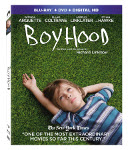
Boyhood
Universal despite its specificity, renowned filmmaker Richard Linklater's poignant observation of growing up isn't just groundbreaking for its ambitious undertaking – shot over a span of 12 years, and with the same cast – but also in the unique way it admirably reflects the human condition. The Oscar-bound "Boyhood" – my favorite film of 2014 – is fixed on life's easy-to-miss "small moments" (a "birds and the bees" conversation during a bowling outing, Bible-gifting grandparents, a sibling's Britney Spears dance; the evolution of game consoles, music and communicative technology). By turning the lens on life's minutia, "Boyhood" is as much a story of the "boy," Mason, as it is the story of every person who sees it. As Mason transitions into adulthood, his mother (an incredibly nuanced Patricia Arquette) tearfully laments, "I just thought there would be more." Her directness encapsulates the melancholic nostalgia brought on by "Boyhood." Talk of a possible Criterion release is heartening given that the special features are modest. Among them: an insightful Q&A with the cast and "The 12 Year Project," a too-brief behind-the-scenes look at the film's creation.
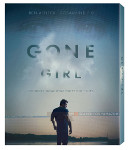
Gone Girl
So much for the "sanctity of marriage." All that nonsense is out the door when the crazy comes a-knockin' in director David Fincher's twisty and twisted "Gone Girl," the best new reason not to tie the knot. In Fincher's adaptation of the popular novel, the fairy-tale romance of Nick (Ben Affleck) and Amy Dunne (the hypnotically versatile Rosamund Pike) results in murder, spite and one very unlucky penis. After Amy's sudden disappearance, Nick goes on a massive search for his wife, piecing together a puzzle that leads to disturbing revelations and deceptive outcomes, and even Neil Patrick Harris (who plays the creepy old flame Desi Collings). Unfolding as a stylish whodunit that toys with our loyalty pertaining to each half of the couple, we become witness to a deliciously wicked game of "till death do us part." So, sanctity? Uh, no. More like insanity. And because you can never have enough crazy, the special features don't just include a commentary from Fincher but also a faux copy of the children's book "Amazing Amy Tattle Tale," a meta tie-in to the movie.
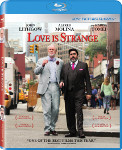
Love Is Strange
The unheard struggles of aging gays are heard in Ira Sach's achingly beautiful "Love Is Strange," a heartfelt indie with married male leads who aren't significant because of who they love but how they love. After 39 years together, George and Ben are inseparable until an unexpected employment discharge leads to a new set of challenges, including forced separation due to financial repercussions. Making a heartbreaking situation all the more agonizing is how much George (Alfred Molina) and Ben (John Lithgow) embody the devotion, patience and steadfastness of a couple bound by the truest form of love. Whether at the piano, joyously leading a family sing-along, or quietly rushing to the other in a verbal display of affection, Lithgow and Molina's chemistry is subtly rendered by an affecting tenderness that's so authentic and sensitive – and, ultimately, what every hopeless romantic dreams of – every resulting emotion is magnified. During the extras, which includes an actors/director Q&A and commentary, Sachs discusses the film as a personal reflection of his own relationship.
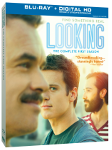
Looking: Season 1
With Season 2 in full Jonathan Groff-giving, sex-having mode, it's clear the creators of HBO's homo-centric, San Francisco-centered "Looking" heard the unjust critiques of its initial launch in 2014. Longer shags! Less boring! The criticism was largely overblown; as the show finds its groove mid-season, there's something to be said for how creator Michael Lannan and director Andrew Haigh keep the show focused on the ordinary realities of gay life, strongly suggesting it's really no different from non-gay life. Dating travails, circumcision talk, friend clashes and that whole sexing your boss thing – she might not have Grindr, but even your mom would find herself preaching relationship advice to Groff's torn and naive Patrick. "Looking" isn't blind to the nitty-gritty details of the community it reflects, however; it's just that even during the gayest of situations, like a Folsom Street Fair outing, the characters break stereotypes to expose a refreshing humanity that reaches beyond sexuality. In addition to Season 1's eight episodes, HBO's home release is surprisingly barebones, with just episodic commentaries from the cast and crew.
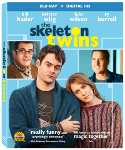
Skeleton Twins
Obviously suicide is no laughing matter, and so "SNL" alumni Kristen Wiig and Bill Hader – as estranged siblings forced to face crippling pasts – effectively shed resemblances of Target Lady and Stefon to get in touch with the brooding shadows of their characters, Milo and Maggie. Well, mostly anyway. The resolve, it seems, isn't just sibling love and understanding – it's poop jokes too. And if all else fails, shake it off with some '80s music. During a moment of levity, Milo lightens the mood by going full-on homosexual – which he is, by the way – during an uproarious lip-sync to Starship's "Nothing's Gonna Stop Us Now" that even a reluctant, self-loathing sad-sack like Maggie can't resist. Performances are impressively outside the realm of their sketch-comedy roots, as both Wiig and Hader go to the dark side but still manage to come off as two of Hollywood's hammiest hams. The message: Suicide sucks. Don't do it. Instead, keep the film's message in mind: "Baby, we can make it if we're heart to heart." The special features benefit from Wiig and Hader's contribution to a commentary with gay director/co-writer Craig Johnson, along with a gag reel, a goofy-good making-of and extended improv from the acting duo's rib-tickling dentist scene.











